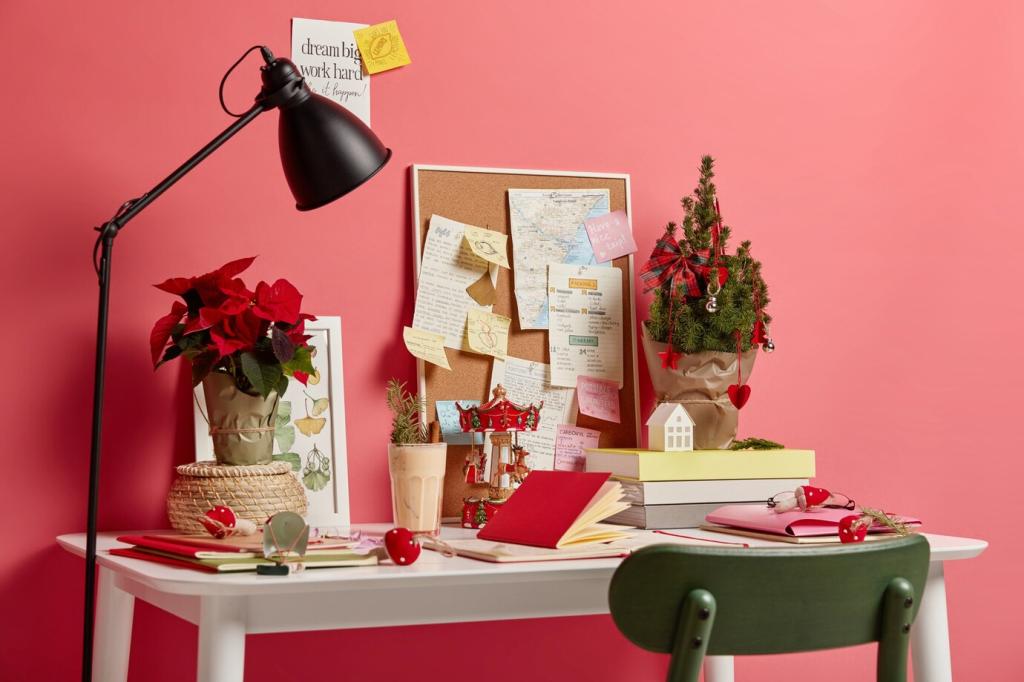
Make It Real: Writing Authentic and Relatable Interior Design Content
Selected theme: Writing Authentic and Relatable Interior Design Content. Welcome to a space where rooms feel lived-in, voices sound human, and stories invite readers to nod along, comment, and subscribe for more honest, practical inspiration.
Finding Your Honest Voice
If a phrase only appears in catalogs, cut it. Swap “curated artisanal vignettes” for “a cozy corner with a lamp you actually switch on nightly.” Readers stay when your words feel usable.

Finding Your Honest Voice
Explain choices the way you would over coffee: simply, kindly, without gatekeeping. Ask candid questions, invite replies, and remind readers you value comments more than perfect phrasing.
Storytelling That Smells Like Fresh Paint
Start With a Small, True Detail
Lead with the scuff on the baseboard or the tile sample that looked mint under store lights and seaweed at home. Specifics anchor stories and spark comment threads.
Center Real People, Not Perfect Rooms
Write about bedtime routines, muddy boots, and late-night snack raids. One reader told us they kept the vintage table because pizza night mattered more than pristine veneer.
Invite Emotion Without Hype
Instead of exaggeration, share quiet wins: a hallway finally whispering welcome, a nursery that dims gently. Ask readers to share their softest home moment in the comments today.
Inclusivity and Real-Life Constraints
01
Budget Transparency Builds Trust
Offer price ranges, low-cost swaps, and where to splurge. When we published a simple fabric-by-the-yard slipcover guide, reader saves and shares climbed, and subscriptions followed.
02
Renters, Families, and Tiny Spaces Matter
Highlight removable wallpaper, narrow storage, and toy-friendly zones. Use examples that reflect lived routines, then invite readers to comment with their smartest small-space workaround.
03
Cultural Respect and Taste Diversity
Avoid flattening heritage pieces into trends. Ask about meaning behind patterns or colors, credit traditions properly, and encourage readers to share stories tied to family objects and rituals.
Process, Mistakes, and Learning
Post the first sketch, the wrong rug, the patchy primer. One of our most-saved posts showed a crooked gallery wall and a step-by-step fix. Imperfection invites conversation.
Quote Clients and Craftspeople
A carpenter’s note about wood movement beats vague warnings. A client’s bedtime routine explains blackout choices better than jargon. Invite readers to request future interviews they want.
Use Lightweight Research Without Losing Warmth
Reference building codes, maintenance cycles, and fabric rub counts in plain English. Link sources briefly, keep the tone friendly, and encourage readers to bookmark and subscribe for updates.
Fact-Check Names, Numbers, and Timelines
Confirm product names, lead times, and safety guidelines. Authenticity includes accuracy. Ask readers to flag corrections kindly; celebrate updates to model transparent, accountable storytelling.

Share a morning shot with cereal bowls, then an evening shot with lamplight. The contrast explains color temperature better than paragraphs. Invite readers to post comparisons and tag us.
Visuals That Match Your Words
SEO With Integrity
Group keywords by human needs: privacy, storage, light, maintenance. Answer with examples and steps. End each post by asking what question you missed and inviting email replies.

Join our mailing list
